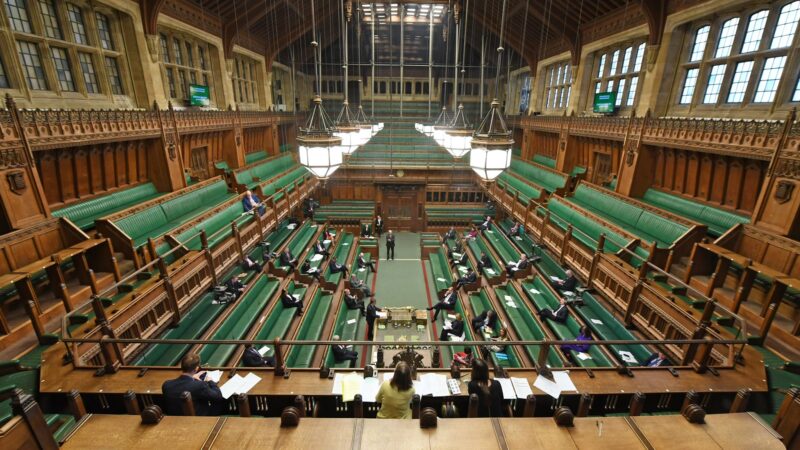
The higher education (freedom of speech) bill, described by Kate Green as a “bill that amounts to legal protection for hate speech”, has passed its second reading with 364 MPs backing the controversial legislation and 216 opposing it.
Moving an amendment for Labour this evening, which would have stopped the bill from progressing further, Green criticised the approach to freedom of speech and expression demonstrated through recent government legislation.
“The police, crime, sentencing and courts bill – and the bill before us this evening – tell the House and the country everything they need to know about how the Conservative government really approaches our right to freedom of speech and expression,” the Shadow Education Secretary said.
“A group of individuals coming together to protest could face criminal charges for causing “serious inconvenience” – but, because of this bill, a group spreading hatred and division on university campuses wouldn’t just be legally protected, they’d be able to sue a university or student union that tried to stop them.
“That’s what we object to on these benches and what the whole House should object to. A bill that amounts to legal protection for hate speech. It has no place on campus; it has no place in our society; and it has no place on our statute book.”
The police, crime, sentencing and courts bill passed its third reading in the Commons last week. Labour opposed the bill at the second and third readings, arguing that it “essentially rules out entirely, potentially, peaceful protests”.
The bill considered today proposes new laws that the government has said are needed to “safeguard” free speech in universities, introducing a “free speech and academic freedom champion” to investigate alleged infringements of free speech.
It will also require England’s universities regulator, the Office for Students (OfS), to introduce new registration conditions on free speech with powers to hand out sanctions, including fines in cases where breaches are found.
Green told parliament this evening that there was no freedom of speech crisis in universities, challenging the necessity of the proposed law and describing the government as “an evidence-free zone”.
Out of 10,000 events due to be held on university campuses in the last year, only six were cancelled. Four were cancelled because they had the wrong paperwork, one event was moved to another venue and one was a pyramid scheme.
The Shadow Education Secretary criticised ministers for legislating to tackle the “small number of cases”, highlighting that the OfS found that just 53 of 59,574 events with external speakers were refused permission in 2017-18.
Closing the debate for the opposition this evening, Labour’s Matt Western MP told MPs that Labour supports free speech and accused the government of “simply seeking headlines” with the legislation being discussed this evening.
The universities shadow minister argued that the law would have been “more aptly titled the hate speech protection bill” and warned it would “protect antisemites, Holocaust deniers and people whose only aim is to cause deep hurt and offence”.
Ministers have said the bill will “allow the OfS to monitor and enforce freedom of speech measures at higher education institutions, [and] introduce a complaints system and redress for breaches of free speech duties through the introduction of a statutory tort, extend duties on free speech to students’ unions and create a role of director of freedom of speech and academic freedom at the OfS”.
Having passed the second reading stage of the legislative process in the Commons this evening, the bill will now proceed to the committee, report and third reading stages before it goes on to be considered by peers in the House of Lords.
Below is the full text of the amendment tabled by Labour, which was defeated.
Keir Starmer
Angela Rayner
Kate Green
Matt Western
Thangam Debbonaire
Sir Alan Campbell
That this House declines to give a second reading to the higher education (freedom of speech) bill, notwithstanding the need to ensure legal protections for freedom of speech and academic freedom, because the bill is a hate speech protection bill which could provide legal protection and financial recompense to those seeking to engage in harmful and dangerous speech on university campuses, including Holocaust denial, racism and anti-vaccination messages.




More from LabourList
‘Unity or division’: Starmer’s message to voters in Gorton and Denton
Almost half of Labour members oppose plans to restrict jury trials, poll finds
‘How Labour can finally fix Britain’s 5G problem’